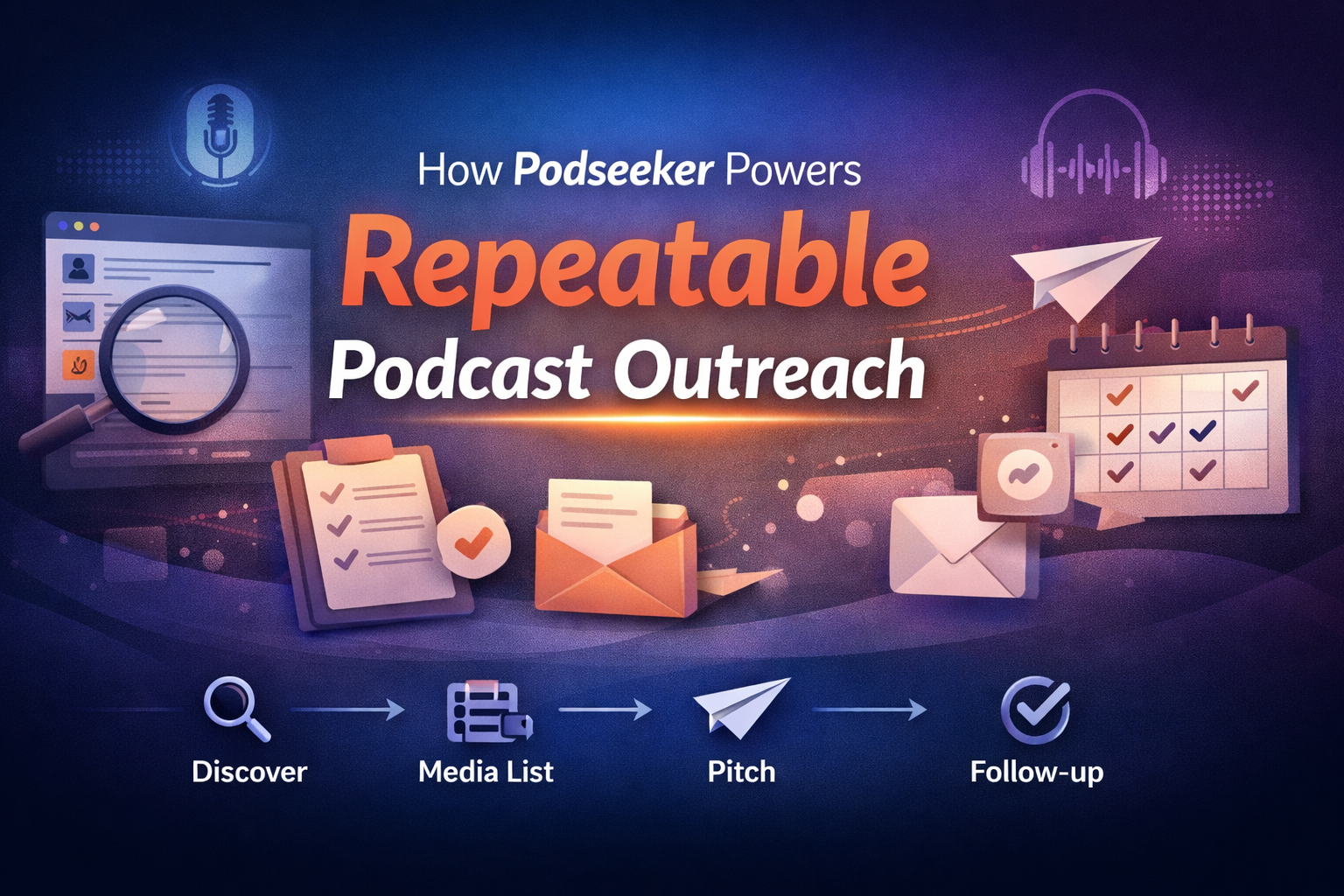As a PR professional, you can prep a client for a five-minute TV segment in your sleep. But a 60-minute podcast interview is a different beast entirely. The free-flowing, conversational format means more opportunities for your client to shine, but also more risk of them going off-message or being caught flat-footed.
This playbook will provide you with a professional framework to lead your clients through the media training process, ensuring they are not just prepared, but poised to deliver a memorable and impactful performance.
Framing the Stakes: How to Explain the "Why" to Your Client
Before you begin training, you need buy-in. Explain to your client that unlike traditional media, podcasts build deep, authentic connections with listeners. A great performance can create loyal fans for their brand, while a poor one can damage credibility. Your job is to equip them with the skills to master this high-stakes environment.
A well-executed training process, which you will lead them through, enables them to:
- Take Control of the Narrative: Skillfully steer the conversation back to key points.
- Enhance Brand Awareness: Deliver clear, compelling messages that boost their thought leadership.
- Project Confidence and Authenticity: Create a genuine connection with the host and their audience.
Your 3-Phase Training Framework
A successful podcast appearance is built on a foundation of rigorous preparation that you will guide. Here’s a step-by-step process to implement.
Phase 1: Your Foundational Research (The Pre-Prep)
The most critical work happens before your client even thinks about talking points. As their strategist, you must become an expert on the podcast they're appearing on.
- Step 1: Analyze the Show's DNA. Use a professional podcast database as your mission control. It allows you to quickly assess a show's format, tone, and audience data, providing the core intelligence you need to build a tailored training plan.
- Step 2: Profile the Host and Past Guests. Leverage a powerful podcast search engine to analyze the host’s interview style. Are they adversarial or friendly? Do they let guests speak or interrupt frequently? Brief your client on what to expect. This research is also vital when you're doing the initial podcast outreach, as it ensures you only pitch shows where your client can succeed.
Phase 2: The Client Rehearsal (The Core Training)
With your strategic intelligence gathered, it's time to actively train your client.
- Step 3: Help Your Client Develop Their "Thesis and Stories." Your client is the subject matter expert, but you are the messaging expert. Your job is to help them distill their knowledge into a single, memorable thesis and 3-5 supporting stories. This structure is far more effective in a long-form conversation than a list of rigid talking points.
- Step 4: Conduct a "Red Team" Simulation. As their coach, you must apply pressure before the host does. Run a mock interview that mirrors the real host's style and ask the tough questions. Record the session and review it with your client to provide constructive feedback on their tone, pacing, and clarity.
- Step 5: Coach Them on Technical Excellence. Guide your client on proper microphone technique to avoid audio issues. For video podcasts, advise them on a professional background, good lighting, and direct camera engagement.
Phase 3: The Performance (Live Guidance)
- Step 6: Provide Day-Of Reminders. Before the interview, remind your client of their thesis and stories. Advise them to listen actively to the host's questions before responding, ensuring they have a real conversation, not a monologue.
- Step 7: Prepare a Recovery Plan. Coach your client on how to handle a misspeak. For pre-recorded shows, it's acceptable to say, "You know, could I try that answer again?" Equip them with polite phrases to gracefully ask for a do-over.
Expanding Your Toolkit: When to Recommend a Specialist
While you can expertly handle most media training, some high-stakes situations might benefit from bringing in a specialized coach for intensive, on-camera practice. Recommending a service like those offered by The Democracy Group shows your commitment to your client's success and positions you as a strategic partner.
Your role as a PR professional is to be the architect of your client's success. By using this framework and starting your preparation with a platform like Podseeker, you ensure every podcast appearance is not just an interview, but a strategic victory.
Try us risk free with a FREE 7 days trial.








